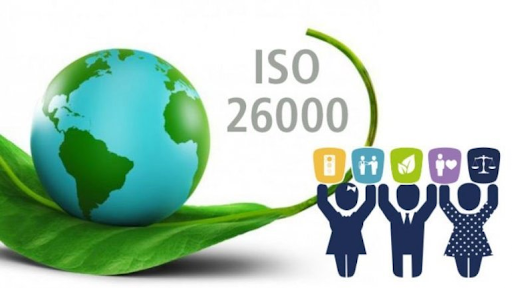In today’s interconnected world, organizations are increasingly held accountable for their impact on society and the environment. As businesses strive to operate ethically and sustainably, ISO 26000 emerges as a critical framework for guiding social responsibility. This international standard offers organizations practical guidance on integrating social responsibility into their operations, helping them contribute positively to society while enhancing their reputation and stakeholder trust. In this blog, we will explore the key principles and guidelines of ISO 26000, emphasizing its importance in fostering responsible business practices.
Understanding ISO 26000
ISO 26000 is an international standard developed by the International Organization for Standardization (ISO) that provides guidance on social responsibility. Unlike other ISO standards, ISO 26000 is not certifiable; instead, it serves as a comprehensive framework to help organizations understand and implement socially responsible practices. Released in 2010, it addresses the growing demand for organizations to operate transparently and ethically, taking into consideration their social, environmental, and economic impacts.
The Seven Core Principles of ISO 26000
ISO 26000 outlines seven core principles that organizations should embrace to effectively implement social responsibility:
1. Accountability
Organizations must be accountable for their actions and decisions. This principle emphasizes the importance of transparency, encouraging organizations to disclose their impacts on society and the environment. By being accountable, organizations can build trust with stakeholders and demonstrate their commitment to ethical practices.
2. Transparency
Transparency involves openly sharing information about an organization’s practices, policies, and performance. By providing stakeholders with clear and accurate information, organizations can enhance their credibility and foster informed decision-making. Transparency also encourages dialogue and collaboration with stakeholders, promoting mutual understanding.
3. Ethical Behavior
Ethical behavior is fundamental to social responsibility. Organizations are encouraged to operate with integrity and fairness, ensuring that their actions align with ethical standards. This principle highlights the need to respect human rights, avoid corruption, and promote equitable treatment of all stakeholders.
4. Respect for Stakeholder Interests
Organizations should consider the interests of all stakeholders, including employees, customers, suppliers, communities, and investors. By engaging with stakeholders and understanding their needs and expectations, organizations can develop strategies that create shared value. This principle emphasizes the importance of collaboration and mutual respect in building strong relationships.
5. Respect for the Rule of Law
Adhering to local, national, and international laws is crucial for responsible business conduct. Organizations are encouraged to comply with applicable regulations and standards while also advocating for positive changes in the legal framework. Respecting the rule of law reinforces the organization’s commitment to ethical practices and contributes to a stable business environment.
6. Respect for International Norms of Behavior
Organizations should align their practices with internationally recognized norms and standards, such as human rights conventions and labor standards. By adhering to these norms, organizations can demonstrate their commitment to social responsibility and contribute to global efforts toward sustainable development.
7. Integration of Social Responsibility into Organizational Practices
Social responsibility should be integrated into the organization’s core values, culture, and decision-making processes. This principle encourages organizations to develop strategies and practices that reflect their commitment to social responsibility, ensuring that it becomes an integral part of their operations rather than an isolated initiative.
Implementing ISO 26000: Steps for Organizations
1. Conduct a Self-Assessment
Organizations should start by assessing their current practices and identifying areas for improvement in relation to social responsibility. This self-assessment helps organizations understand their strengths and weaknesses and set priorities for implementation.
2. Develop a Social Responsibility Strategy
Based on the self-assessment, organizations should develop a comprehensive strategy that aligns with ISO 26000 principles and core subjects. This strategy should outline specific goals, actions, and timelines for integrating social responsibility into organizational practices.
3. Engage Stakeholders
Engaging with stakeholders is crucial for effective implementation. Organizations should communicate their social responsibility goals and invite feedback from stakeholders to ensure their needs and expectations are considered.
4. Provide Training and Resources
Training employees on social responsibility principles and practices is essential for fostering a culture of responsibility within the organization. Providing resources and support helps employees understand their roles in promoting social responsibility.
5. Monitor and Evaluate Progress
Organizations should establish mechanisms for monitoring and evaluating their progress in implementing social responsibility practices. Regular assessments help identify successes and areas for improvement, allowing organizations to adapt their strategies as needed.
Conclusion
ISO 26000 provides a comprehensive framework for organizations seeking to enhance their social responsibility practices. By embracing the core principles and addressing the key subjects outlined in the standard, organizations can create positive impacts on society, the environment, and their stakeholders. In an era where consumers and investors increasingly prioritize ethical and sustainable practices, implementing ISO 26000 is not only a moral obligation but also a strategic advantage. By committing to social responsibility, organizations can build trust, foster loyalty, and contribute to a more sustainable future for all.

